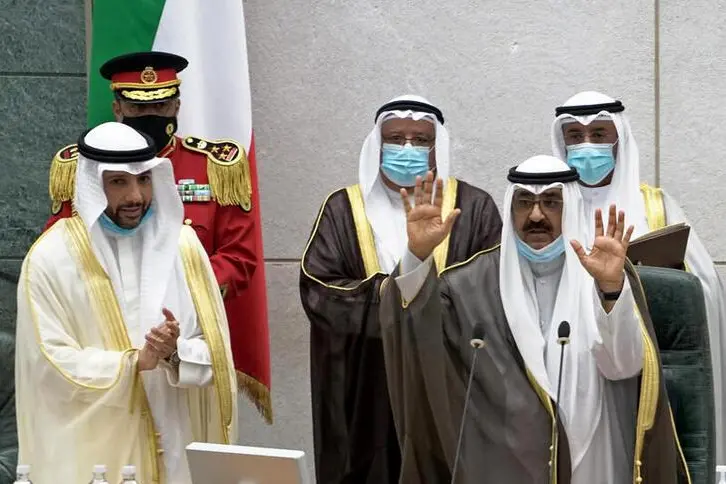PHOTO
There is a famous saying when it comes to Kuwait that indicates how leadership is an integral part of the country. It states: “Kuwait is Al-Sabah, and Al-Sabah is Kuwait.” In the past few days, all eyes were fixed on the oil-rich state following the death of its 91-year-old emir last week.
As expected, the country enjoyed a very smooth succession process, in which the new emir and crown prince took office one after the other. Kuwait’s new crown prince, Sheikh Meshal Al-Ahmad Al-Jaber Al-Sabah, took his oath of office before parliament on Thursday after being nominated by his half-brother, the new emir, Sheikh Nawaf Al-Ahmad Al-Sabah. The octogenarian crown prince was unanimously approved by the country’s National Assembly.
Not all members of the Al-Sabah family are closely involved in politics. Many have opted for careers in business, in government administration or in academic professions. Sheikh Meshal, with past experience in the Interior Ministry, has been the deputy chief of the Kuwait National Guard since 2004, largely staying out of the political scene.
One of the things being praised about the new crown prince is that, unlike other top candidates for this position, he has a clean profile in the country’s tumultuous politics, despite his career in the Interior Ministry. Sheikh Meshal, who accompanied the late emir to the US for the latter’s medical treatment, is also known for being very close with the new ruler. His appointment, rather than the selection of a next-generation candidate, has been interpreted by analysts as a “conservative choice” that provides much-needed continuity and stability. Thus, the selection of Sheikh Meshal, the fourth sibling to ascend from the same branch of the royal family, delays any generational change in Kuwait, for a decade at least.
Sheikh Nawaf nominated his successor as crown prince in a very short period of time — just eight days — breaking the record for the quickest nomination despite having a year to make his choice. Previous rulers took at least 20 days. This was not only due to the fact that Sheikh Meshal was the strongest candidate for the post, but also the fact that only a few weeks remain until parliamentary elections are due to take place. Sheikh Nawaf prolonged the term of the outgoing parliament until Oct. 20 to ensure it could approve the crown prince. Given the economic problems the country faces due to the coronavirus disease (COVID-19) pandemic and falling oil prices, the next parliament is likely to have more opposition members.
The most important aspect of the previous elections, held in November 2016, was that the opposition made a strong comeback after an absence of more than three years, winning almost half of the seats in the 50-member parliament. The upcoming elections are expected to further strengthen the position of the opposition, although it is hard to say that Kuwait has a unified opposition. Its parliament is often an amalgam of several figures with diverse demands and motivations.
However, Kuwait’s parliament takes a unified stance when it comes to the country’s foreign policy. Therefore, much of the parliamentary dispute is related to domestic issues. The issues that will be on the new parliament’s agenda will range from the budget deficit to rising prices, from youth unemployment to austerity measures, from oil prices to public sector jobs, and, most importantly, the issues related to COVID-19.
Thus, the succession took place while the country faces some key issues. Sheikh Nawaf and Sheikh Meshal, both brothers of the late ruler, are expected to focus on domestic issues. Both have witnessed all the stages of Kuwaiti politics since the country’s independence in 1961. Given their years of service in the state apparatus, it is likely that the country will continue on the same foreign policy path, but it might go through significant changes in terms of domestic politics. Kuwait, with its solid institutions, has been through several critical phases in its history, while learning lessons from most of these phases.
Sheikh Meshal, in his televised remarks, said Kuwait will uphold its regional and international commitments and “its path of peace and democratic approach.” Thus, it will be significant to see the new leadership’s policies and the outcome of the upcoming parliamentary elections, since these developments are likely to shape Kuwaiti politics for years to come.
- Sinem Cengiz is a Turkish political analyst who specializes in Turkey's relations with the Middle East. Twitter: @SinemCngz
Copyright: Arab News © 2020 All rights reserved. Provided by SyndiGate Media Inc. (Syndigate.info).





















